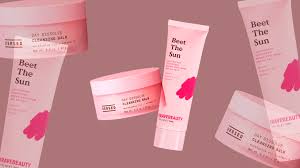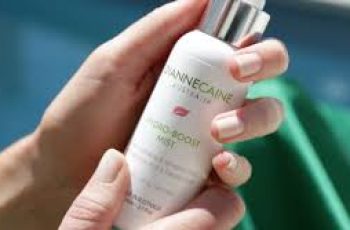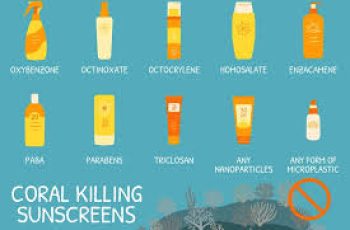
Vitamin E in Skin Care
Vitamin E is used in skin care products as parts of anti-aging, anti-inflammatory, and skin lightening products.
It is a potent antioxidant and is consumed regularly as part of a normal diet.
If you are looking for a studied and safe antioxidant for your sun damage or wrinkle treatments, read below to see if vitamin E is right for your skin type!
What is vitamin E?
Vitamin E is actually a group of compounds made up of chemicals like tocol and tocotrienol derivatives. In particular, the four compounds medicine generally recognizes as “vitamin E” are the α-, β-, γ- and δ- tocopherol varieties. (a, b, g, d)
Of these four varieties, a-tocopherol is the most efficiently processed in the body and most prevalent in common plant species. For this reason, a-tocopherol is the most common form of vitamin E used in skin care product formulations.
Interestingly, a person’s daily recommended intake of vitamin E is based exclusively on a-tocopherol recommendations, not the other 3 varieties.
Vitamin E is an effective antioxidant that is soluble in fats, meaning it is able to penetrate deep into the skin to reduce free radicals caused by radiation. (2)
Synthetic varieties of vitamin E exist in medicine, but they are less easily absorbed by the body than naturally occurring vitamin E compounds. (23)
How does it work?
Vitamin E, (specifically a-tocopherol in skin care) expresses antioxidant properties through its ability to bind to and eliminate free radicals on the skin.
The structure of a-tocopherol allows it to bind multiple free radicals at once, making it extremely effective for sun damage or anti-aging treatments.
Vitamin E is fat soluble, able to penetrate deep into the skin. (31)
This compound is vital for your body’s normal regulation of free radicals, and low levels of vitamin E are considered early signs of oxidative damage. (7,8)
It’s good to use vitamin E alongside ingredients like vitamin C or Coenzyme Q10, which donate electrons to vitamin E, turning it back into an antioxidant after it has eliminated a bunch of free radicals so it can eliminate even more of them. (1)
Studies have also found that Vitamin E slows the synthesis of prostaglandin E2; this gives the compound anti-inflammatory effects in skin care.
Research suggests that the inhibition of prostaglandin E2 can also result in increased collagen synthesis, resulting in stronger and less wrinkle-prone skin.(6)
Benefits
Vitamin E is one of the most broadly beneficial ingredients in skin care, with uses as an antioxidant, anti-aging ingredient, anti-inflammatory, and a skin lightener.
As a potent antioxidant, vitamin E is great for treating/preventing wrinkles and scavenging free radicals that cause genetic damage and skin aging.
Studies have found that a-tocopherol is effective at protecting the skin from UVB radiation when combined with ingredients like ferulic acid. (28)
Atopic dermatitis, also known as eczema, has demonstrated positive reactions to vitamin E treatments in many studies. (9,29)
A-tocopherol has a small impact in dark spots as well, interfering with melanogenesis through multiple mechanisms we will cover in more detail below. (41,42)
If you have concerns regarding facial lines, deep wrinkles, or rough skin, vitamin E can also be used to treat those. (22)
Vitamin E has also demonstrated boosts to collagen synthesis, anti-inflammatory effects, and immunostimulatory properties. (6)
Oral Vitamin E has been said to help decrease skin dryness from Accutane.
Side-effects
Even though vitamin E is an important, common compound present in many normally consumed products, there are still a few considerations to make before including it in your skin care routine.
Studies have found that vitamin E can cause a skin allergy in nearly 20% of patients. (33)It is found on lists of skin allergy causing ingredients.
Reactions to topical Vitamin E an include stinging, dryness, or redness.
Certain forms of tocopherol, including a-tocopherol, have demonstrated significant rates of contact irritation as compared to many other ingredients. (33)
If you have sensitive or dry skin, there is a chance that products with high concentrations of vitamin E can exacerbate concerns of eczema or red skin. (40)
One study found that vitamin E preparations can worsen the severity of certain surgery-related scars. (33)
Is vitamin E safe?
Is it safe?
Vitamin E is safe in cosmetic formulations, having no significant health risks associated with its use.
The Cosmetic Ingredient Review panel has conducted extensive studies on the ingredient’s use in skin care, and has graded it safe for commercial formulations.
The EWG gives tocopherol a score of 1-2 meaning it is safe.
Vitamin E is considered a clean ingredient, however it is not always gluten free.
If you do not express contact sensitivity or an allergy to vitamin E products, it is likely a safe addition to your custom skin care regimen.
Vitamin E for specific concerns:
Anti-aging
Vitamin E is one of the most common ingredients used in the formulation of anti-aging products. Antioxidants are one of the best categories of anti-aging ingredients.
Various causes of aging can only be treated with antioxidants. (43)
Antioxidants such as vitamin E and vitamin C are have demonstrated the ability to protect both collagen and elastin from glycation, (damage from exposure to sugars, like those in honey). (44)
Studies have found that topical applications of tocopherols can reduce the depth of already existing wrinkles. (21)
Since there are many causes of aging, and not all of them are related to oxidative damage, the best anti-aging products contain combinations of ingredients that cover each others shortcomings.
Some great anti-aging ingredients you can use in combination with vitamin E are:
Borage seed oil
Coenzyme Q10
Ferulic acid
Glycolic acid
Jojoba oil
Retinoids
Safflower oil
Salicylic acid
Hyperpigmentation
A-tocopherol, vitamin E, is a good additive for products designed to treat hyperpigmentation concerns such as melasma, PIH, or discoloration from sun damage.
Vitamin E interferes with melanin production in keratinocytes without damaging normal cell development. This means that vitamin E can be a good addition to dark spot treatments. (42)
Vitamin E has also been shown to interfere with tyrosinase receptors in certain concentrations. (41) In particular, tocopherols are useful for lightening dark spots caused by sun damage.
If you are looking for a safe, natural, and proven addition to your skin lightening routine, vitamin E is a great candidate for your consideration.
That being said, skin lightening ingredients are best used in combination with other skin lighteners for increased effects.
Inflammation
Vitamin E has anti-inflammatory properties because it inhibits the production of various prostaglandins, compounds that trigger redness, puffiness, and other symptoms of inflammation on the skin.
Irritation and sensitivity on the skin can also be caused by free radicals from UV radiation damage, which can be treated by antioxidants like tocopherols. (44)
For this reason, many anti-inflammatory products contain vitamin E.
There are many causes of inflammation, so it is important to understand the science of inflammation before you purchase a skin care product.
Different kinds of inflammation are caused by different reactions in the body; vitamin E is best for inflammation related to prostaglandin or oxidative stress on the skin.
Sun damage
Antioxidants like a-tocopherol are great for treating sun damage because they can remove gene-damaging free radicals from the skin and protect from UVB radiation.
Studies have shown that vitamin E deficiencies can result in increased oxidative stress and genetic damage. (2) Genetic damage in the skin can lead to skin cancer.
Vitamin E protects your skin from free radicals when used either topically or orally, which means a vitamin E rich diet is a good step towards preventing sun damage.
Many popular sun damage treatments contain ingredients rich in vitamin E for these antioxidant effects.
In addition, studies have found that topical applications of vitamin E prevent your skin from producing damaged, sunburned cells. (12,13)
Other studies on a-tocopherol have found it significantly reduces damage from daily UVB exposure. (14,15)
Vitamin E is not well suited to treating damage caused by UVA radiation. (21)
Vitamin E is one of the most studied antioxidants used for sun damage treatment formulations, and is considered one of the best at protecting from UVB radiation.
Vitamin E for sun damage
Vitamin E supplements for skin care
Vitamin E expresses many of the same benefits for skin care when used orally instead of topically.
Studies have found that orally ingested tocopherols can interfere with UV radiation induced redness and stinging. (23)
It has also been found that oral supplements of vitamin E can interfere with elastin degradation, keeping the skin stretchy and healthy. (24)
Unfortunately, the benefit you lose when taking oral tocopherol supplements is it UV protection. Vitamin E supplements do not protect your sun from radiation like topical applications can. (25)
In general, vitamin E supplements are perfectly fine to take and have some benefits for your skin health as well.
If you’re on vitamin E supplements, they shouldn’t interfere with your skin care regimen.
Vitamin E benefits for men’s skin care
Vitamin E is great for men’s health products in both topical and consumable formulations.
Vitamin E is known for being critical to normal production of testosterone and other reproductive hormones in both males and females. (45)
There is no common risk specific to men when discussing vitamin E products in skin care.
If you’re looking to add a great antioxidant into your skin care routine, take our quiz to find your skin type before you choose a vitamin E product.
Take the Quiz
Serums
Serums are highly concentrated liquid forms of specific ingredients. Serums of vitamin E express all of the properties of tocopherols in high concentration.
If you need a very potent antioxidant in your skin care routine, a vitamin E serum can be a good choice for you.
Serums are often among the most expensive types of skin care products, so make sure they really fit your regimen before you buy them.
Vitamin E Serums
Vitamin E rich oils
Many natural ingredients commonly used in skin care contain vitamin E (a-tocopherol) in their chemical compositions.
Five of our favorite natural oils in skin care that are rich in vitamin E are:
Almond oil
Grapeseed oil
Peppermint oil
Rosehip oil
Sunflower oil


